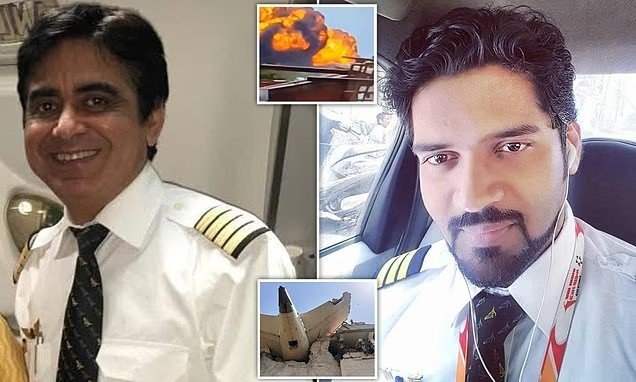Captain Sumeet Sabharwal (left) reportedly suffered mental health issues. Pictured (right) is First Officer Clive Kunder
Source: Africa Publicity
A leading aviation safety expert has claimed that one of the pilots involved in last month’s deadly Air India crash had a history of mental health issues.
Captain Mohan Ranganathan, a prominent Indian aviation safety expert, told The Daily Telegraph that Captain Sumeet Sabharwal, who was in command of Air India Flight 171, had taken medical leave over the past few years due to mental health challenges. His comments were based on conversations with other Air India pilots.
“He had taken time off from flying in the last three to four years,” said Captain Ranganathan. “He had taken medical leave for that.”
Captain Sabharwal is also believed to have taken bereavement leave following the death of his mother. However, Ranganathan said Sabharwal was medically cleared to fly prior to the fatal crash.

Air India has confirmed it is fully cooperating with the ongoing investigation led by India’s Aircraft Accident Investigation Bureau (AAIB). A final report is expected within a year.
In an internal memo, Air India CEO Campbell Wilson stated that a preliminary investigation found no mechanical or maintenance issues with the aircraft. He cautioned employees against making premature judgments about the cause of the crash.
India’s Civil Aviation Minister, Kinjarapu Ram Mohan Naidu, also urged the public to wait for the final report before drawing conclusions. “Let us wait for the final report,” he said.
Investigators are reportedly reviewing the medical histories of both pilots as part of the probe.
Flight 171 crashed shortly after takeoff in Ahmedabad, killing 241 people on board and 19 on the ground.
Sources familiar with the black box recordings told Corriere della Sera that Captain Sabharwal handed control of the aircraft to First Officer Clive Kunder before takeoff, saying, “The plane is in your hands.”
While it is not uncommon for captains to allow first officers to take off, sources close to the preliminary report suggested that Mr. Kunder may have been overwhelmed during the critical moments before the crash.
The aircraft became airborne at 1:38:39 p.m. but lost power and crashed just 30 seconds later in a residential neighborhood.
According to a source briefed on the U.S. assessment of the evidence, Mr. Kunder questioned Captain Sabharwal’s decision to move the fuel switches into a position that apparently starved the engines of fuel.
The full cockpit voice recorder transcript has not been released. Investigations by the AAIB, with input from international aviation bodies, are still ongoing.








